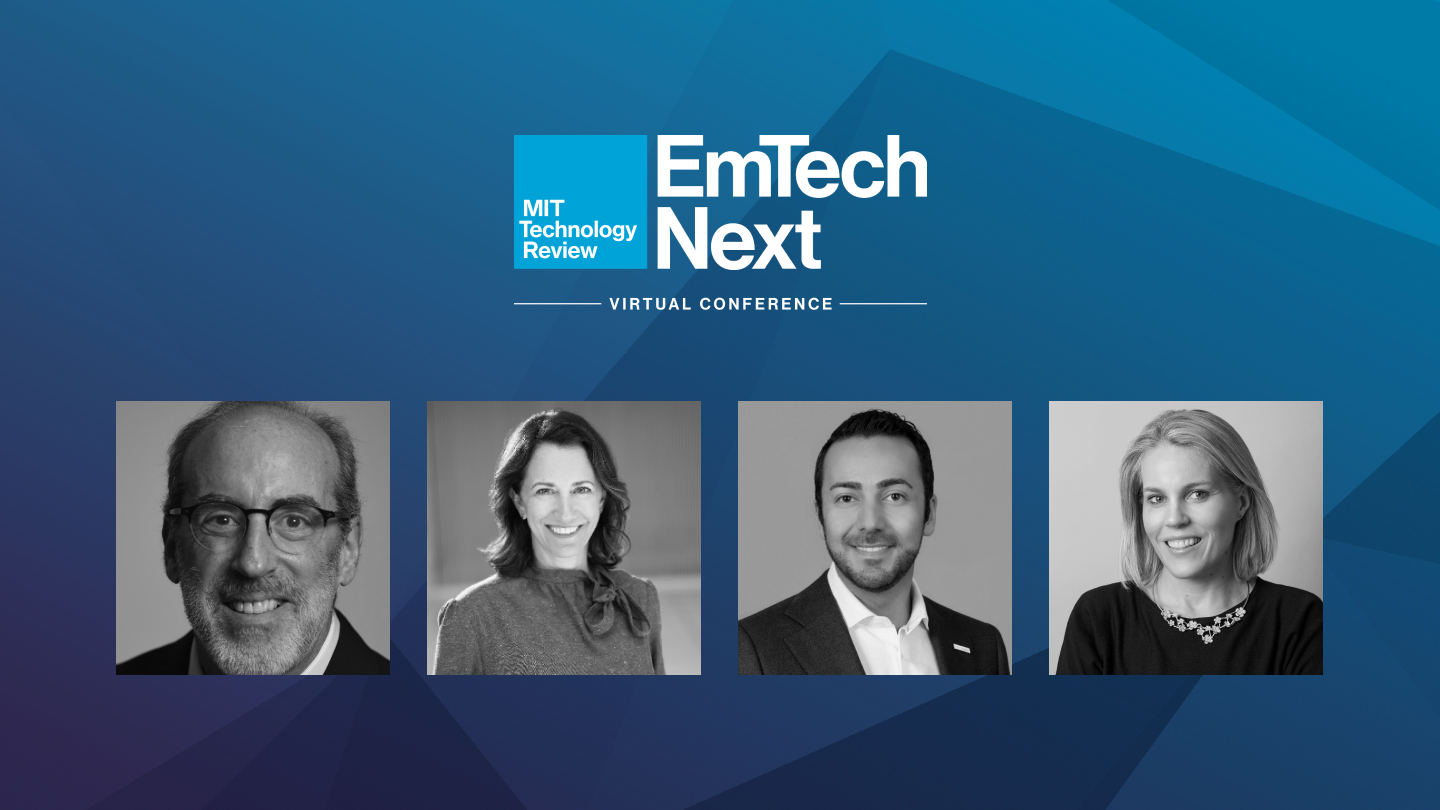Sponsored
Activating the Opportunity Marketplace and Investing in the Workforce of the Future: Fast Forward or Hard Reverse

Presented byDeloitte
Right now, businesses are facing a three-dimensional challenge—survival while remaining competitive, re-engagement of the workforce, and continuous cultivation of the customer base—coupled with rapidly adopting new technologies like 5G, AI, cloud, and blockchain. In this “new normal” should organizations stay the course or chart a new path? Going back to business-as-usual is not an option, and organizations must embrace technology to empower workers and create new opportunities. This virtual panel session at MIT Technology Review's EmTech Next conference takes an in-depth look at Deloitte and MIT Sloan Management Review’s recently released research on the opportunity marketplace, which sits at the center of this paradigm shift in business strategy, and asks: are you ready to fast forward and accelerate the future of work?
About the speakers

Jeffrey L. Schwartz, US Future of Work Leader, Principal, Deloitte Consulting LLP
Jeff is a senior consulting partner and is a recognized global advisor and thought leader in the future of work. He has been a consulting partner for 25 years. He has extensive experience in human capital issues in global and growth markets, and he has lived in and led practices in the US, India, Russia, Belgium, Israel, and Kenya. He currently leads the US Consulting Future of Work practice, and he has been the global editor for 10 years of Deloitte’s Global Human Capital Trends report, one of the world’s leading annual reports on the future of the workforce, organizations, and HR, which he started in 2011. He has authored and contributed to more than 40 articles for the Wall Street Journal, The Deloitte Review, the Sloan Management Review (at MIT), the Rotman Management Review (at the University of Toronto), and Wired Magazine.

Robin Jones , US Workforce Transformation Leader, Deloitte Consulting LLP
Robin is a Principal with 22 years of organization and workforce transformation consulting experience. She has spent the majority of her career advising business leaders in Tech, Media, and Telecommunications through complex business transformations and now leads Deloitte’s Future of Work initiatives, advising senior executives as they contemplate how data, technology, and societal changes are impacting work, their workforce, and workplace strategies.
At Deloitte, Robin leads Workforce Transformation and serves on the Senior Marketplace Leadership Team in Deloitte Consulting. She has end-to-end responsibility for all Workforce Transformation offerings, assets, people, and client service in the Human Capital business. Robin completed her PhD in Engineering at Georgia Tech and in the late 1990s published research on the future of work for architecture, engineering, and construction; focusing on the technological changes, innovation, value creation opportunities, and executive skills required to lead companies into the 21st century. She holds an MS in Architecture and BS in Interior Design from Cal Poly, San Luis Obispo.

Andrew Saidy, VP, Talent Digitization, Schneider Electric
Andrew Saidy is a Human Resources executive with more than 15 years of experience with public and private multinationals and international organizations. Specialized in leading digital HR transformations and disruptions, Andrew has also held various roles in talent acquisition and management, executive coaching, HR business partnering, and learning and development. Andrew currently leads Schneider Electric’s ambitious Talent Digitization agenda, bringing digitization, AI, and machine learning to Schneider’s HR ecosystem. In addition to his Talent Digitization role, Andrew leads Schneider’s global Employer Branding and University Relations.

Elizabeth Bramson-Boudreau, CEO and Publisher, MIT Technology Review
Elizabeth Bramson-Boudreau is the CEO and publisher of MIT Technology Review, the Massachusetts Institute of Technology’s independent media company.
Since Elizabeth took the helm of MIT Technology Review in mid-2017, the business has undergone a massive transformation from its previous position as a respected but niche print magazine to a widely read, multi-platform media brand with a global audience and a sustainable business. Under her leadership, MIT Technology Review has been lauded for its editorial authority, its best-in-class events, and its novel use of independent, original research to support both advertisers and readers.
Elizabeth has a 20-year background in building and running teams at world-leading media companies. She maintains a keen focus on new ways to commercialize media content to appeal to discerning, demanding consumers as well as B2B audiences.
Prior to joining MIT Technology Review, Elizabeth held a senior executive role at The Economist Group, where her leadership stretched across business lines and included mergers and acquisitions; editorial and product creation and modernization; sales; marketing; and events. Earlier in her career, she worked as a consultant advising technology firms on market entry and international expansion.
Elizabeth holds an executive MBA from the London Business School, an MSc from the London School of Economics, and a bachelor’s degree from Swarthmore College.
Deep Dive
Humans and technology
Building a more reliable supply chain
Rapidly advancing technologies are building the modern supply chain, making transparent, collaborative, and data-driven systems a reality.
Building a data-driven health-care ecosystem
Harnessing data to improve the equity, affordability, and quality of the health care system.
Let’s not make the same mistakes with AI that we made with social media
Social media’s unregulated evolution over the past decade holds a lot of lessons that apply directly to AI companies and technologies.
Stay connected
Get the latest updates from
MIT Technology Review
Discover special offers, top stories, upcoming events, and more.